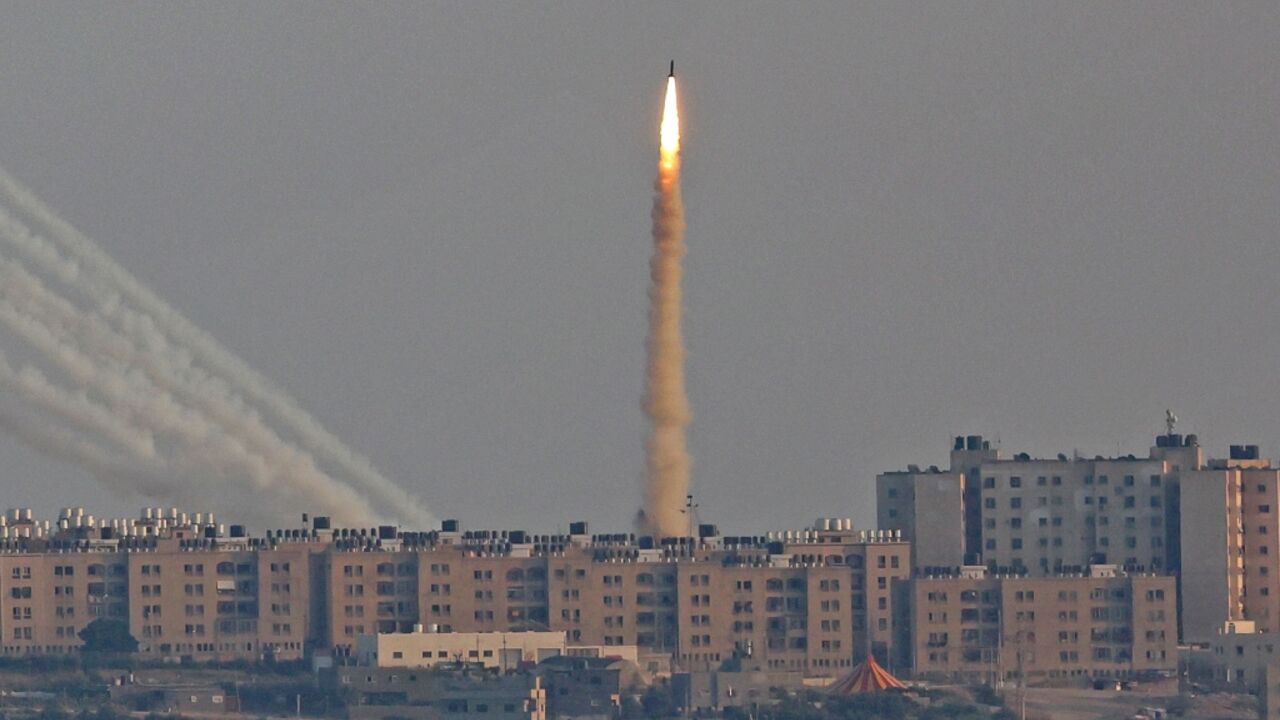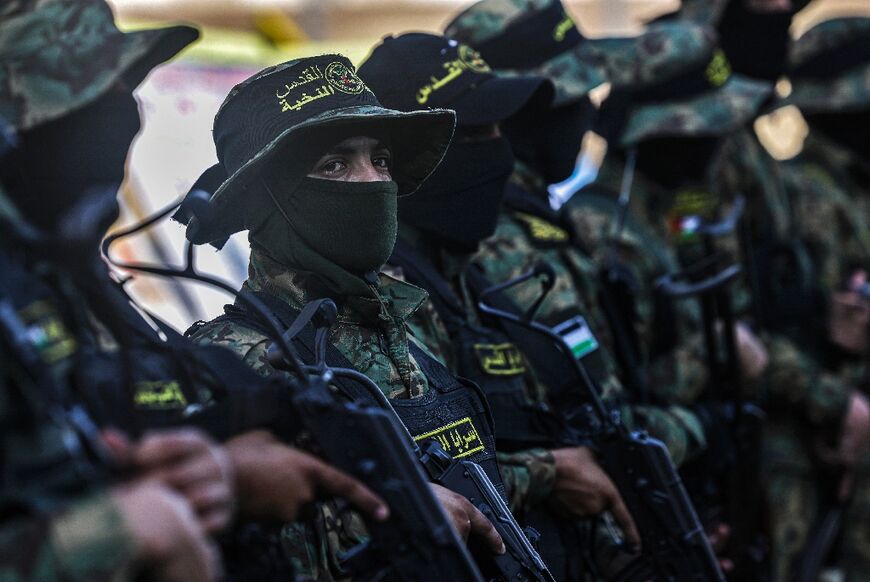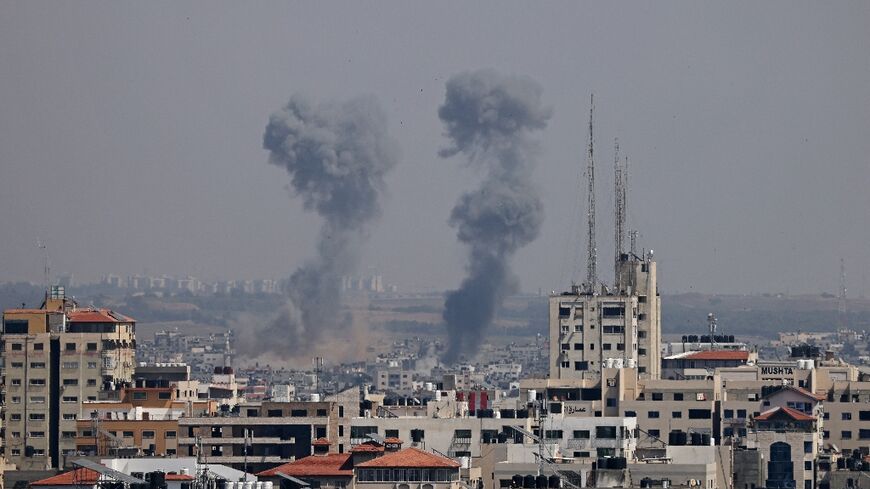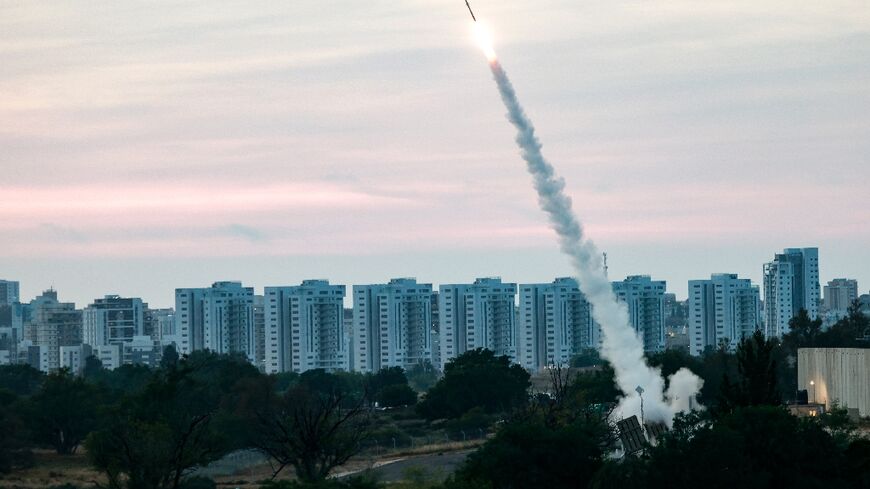Islamic Jihad faces tough questions after Israeli strikes

More than a week since Israeli air strikes smashed into a Gaza Strip highrise, local resident Said Bessia pointed to a hole punched through concrete where a missile killed an Islamic Jihad commander.
"This is where he was sitting," Bessia said, referring to Tayseer al-Jabari, who was meeting several top militants on the sixth floor of the Palestine Tower building.
The August 5 strikes were among the first of a three-day bombardment of the densely populated Palestinian enclave which, even the militants acknowledged, dealt a blow to their leadership.
It also exposed the deadly failure of some of the group's rockets, and divisions between Islamic Jihad and another militant group, Gaza's rulers Hamas.
Israeli Prime Minister Yair Lapid said his country's strikes "landed a devastating blow" that targeted the "entire senior military command" of the Iran-backed group in Gaza.
One senior Islamic Jihad leader told AFP that the commanders killed were replaced "within minutes", but Ahmed al-Mudallal, from the group's political bureau, acknowledged the impact.
"This round was difficult," he told AFP. "We lost many major military leaders that were important to us."
Mudallal's son Ziad -- an Islamic Jihad officer -- was killed alongside senior commander Khaled Mansour in a strike in Gaza's southern city of Rafah.
- Rocket misfires -
Israel said it launched aerial and artillery fire on Islamic Jihad positions as a "pre-emptive" operation to stop an imminent attack.
In response, Islamic Jihad fired more than a thousand rockets -- but many of those either hit farmland or were intercepted by Israel's air defence system.
In Gaza, according to the enclave's health ministry, 49 Palestinians were killed, 17 of them children, and more than 350 wounded.
In Israel, shrapnel wounded three people.
Israel insists some of the deaths of civilians in Gaza were caused by militant rockets falling short or misfiring, including in Jabalia camp where, it said, one errant militant missile was responsible for the death of at least four minors.
Some residents agree.
"I was with my wife and children in my house when we heard the sound of a huge explosion. Two minutes later I looked out the window and saw a horrible scene. A house nearby was destroyed," Abdul Rahman, a Jabalia resident who did not want his name used for security reasons, told AFP.
One of the rockets launched at Israel had "landed on the house," he said.
Souha, another resident of Jabalia, said that "it's a war and there are mistakes of the occupation and the resistance," a reference to Israel and Islamic Jihad.
"But the reason for the war is still the occupation," added the woman who "saw a rocket fall on her neighbours' house". She also preferred not to give her second name, for similar reasons.
Video circulating online appears to show one rocket launching and then twisting back towards a neighbourhood of densely-packed buildings in Gaza, followed by an explosion and rising grey smoke.
The conflict exposed the frustrations of ordinary Palestinians in the poverty-stricken coastal enclave, blockaded by Israel since 2007.
In rare outspoken criticism, some Palestinians even publicly rebuked the militants on social media for the errant rockets.
- 'Journey of jihad' -
Muhammed Shehada, from the Euro-Med Human Rights Monitor, said the rockets that fell short were bigger ones built to hit the Israeli coastal city of Tel Aviv and beyond.
"They (Islamic Jihad) have tried to improve the range and explosive power of their rockets -- but not with a solid scientific base", said Shehada, an analyst from Gaza.
"The ones that went beyond 40 kilometres (25 miles) were not mechanically or technically savvy. They were the ones that fell back to Gaza," he said.
Two rockets did reach the outskirts of Jerusalem, more than 60 kilometres (37 miles) from Gaza, but were intercepted by Israel.
The issue of the rockets has been one "of immense frustration and bitterness with the wider Gazan people," he added.
The three-day escalation has also stretched divisions with Gaza's Islamist rulers Hamas who, while publicly offering support to Islamic Jihad, stopped short of entering the fight.
Leaders of Hamas were furious at what they said was Islamic Jihad's recklessness, a senior member in the West Bank told AFP.
"Hamas has offered repeatedly to Islamic Jihad to help design and improve the rockets, but Jihad always say they have it under control," said Shehada.
Islamic Jihad's leader Ziad al-Nakhala -- speaking from Iran, where he was visiting when conflict broke out -- declared victory in the battle.
In contrast to past conflicts, Islamic Jihad had little to show after the conflict ended in an Egyptian-brokered ceasefire on August 7, Shehada said.
"Usually Hamas would agree on a ceasefire with some tangible deliverable to the people of Gaza," he told AFP. "This doesn't offer anything".
Mudallal, still mourning his son, vows the movement he helped found will recover.
It had lost other leaders before, he said. "And that never stopped the resistance of the people and the journey of jihad."










